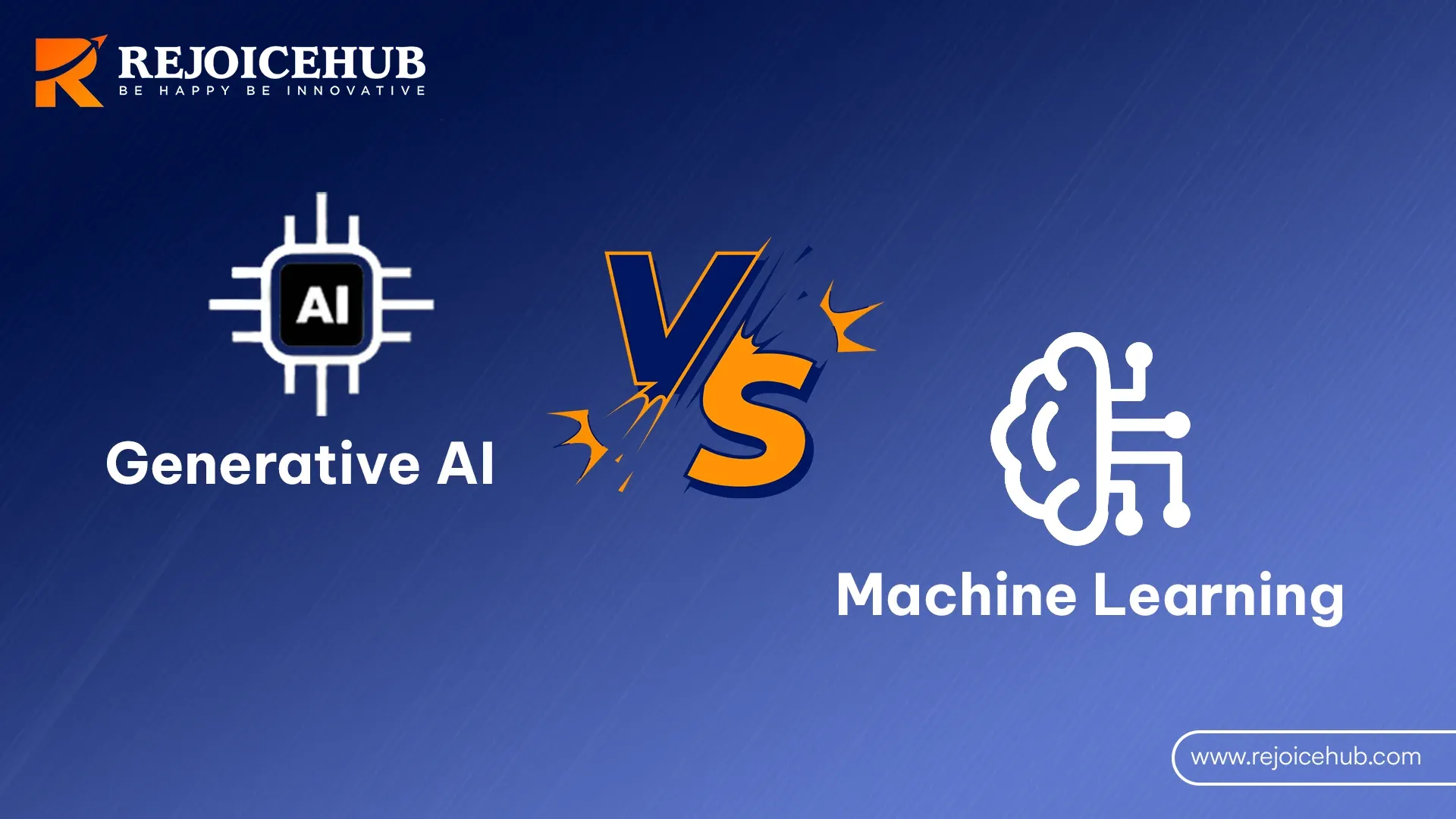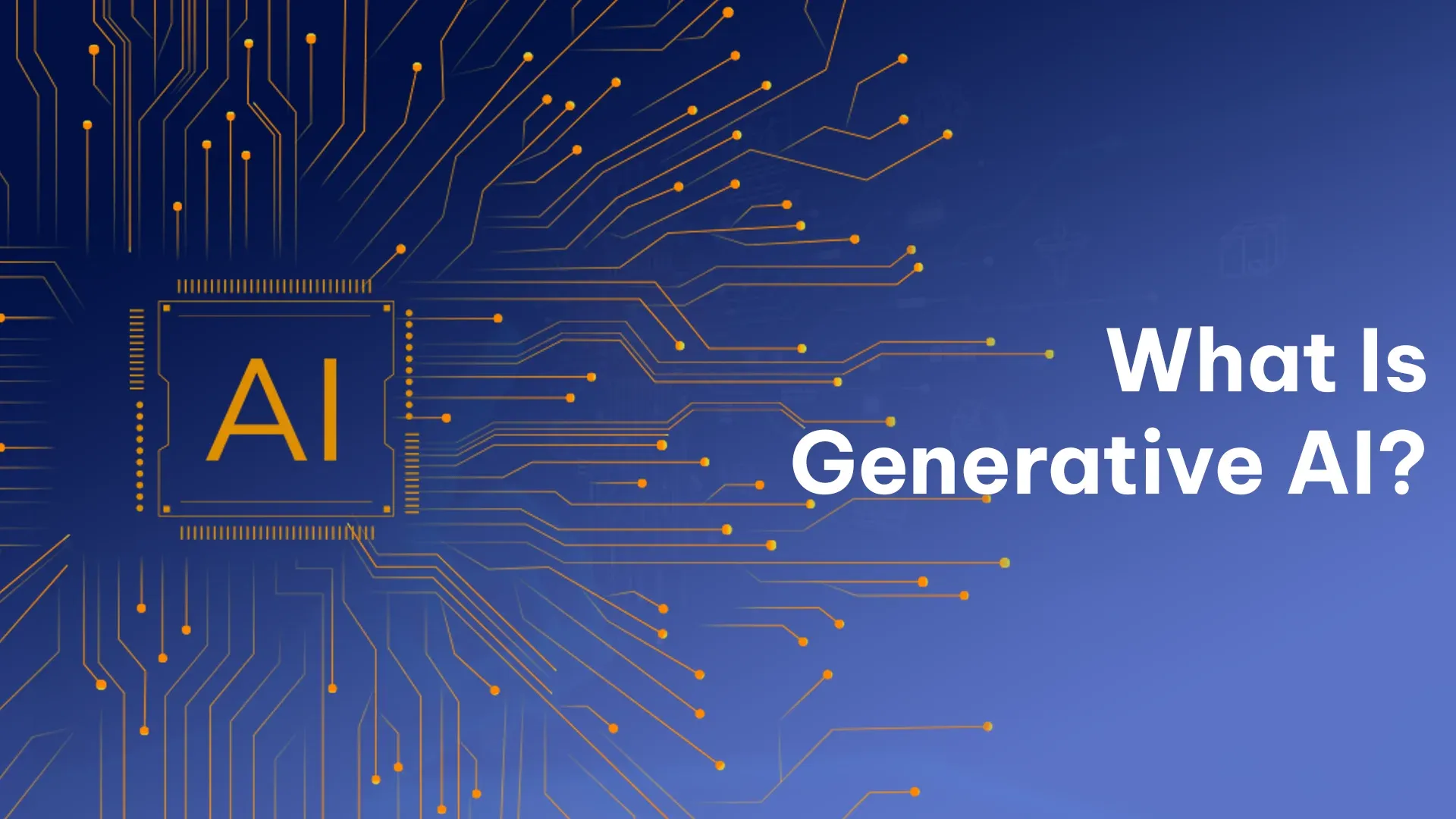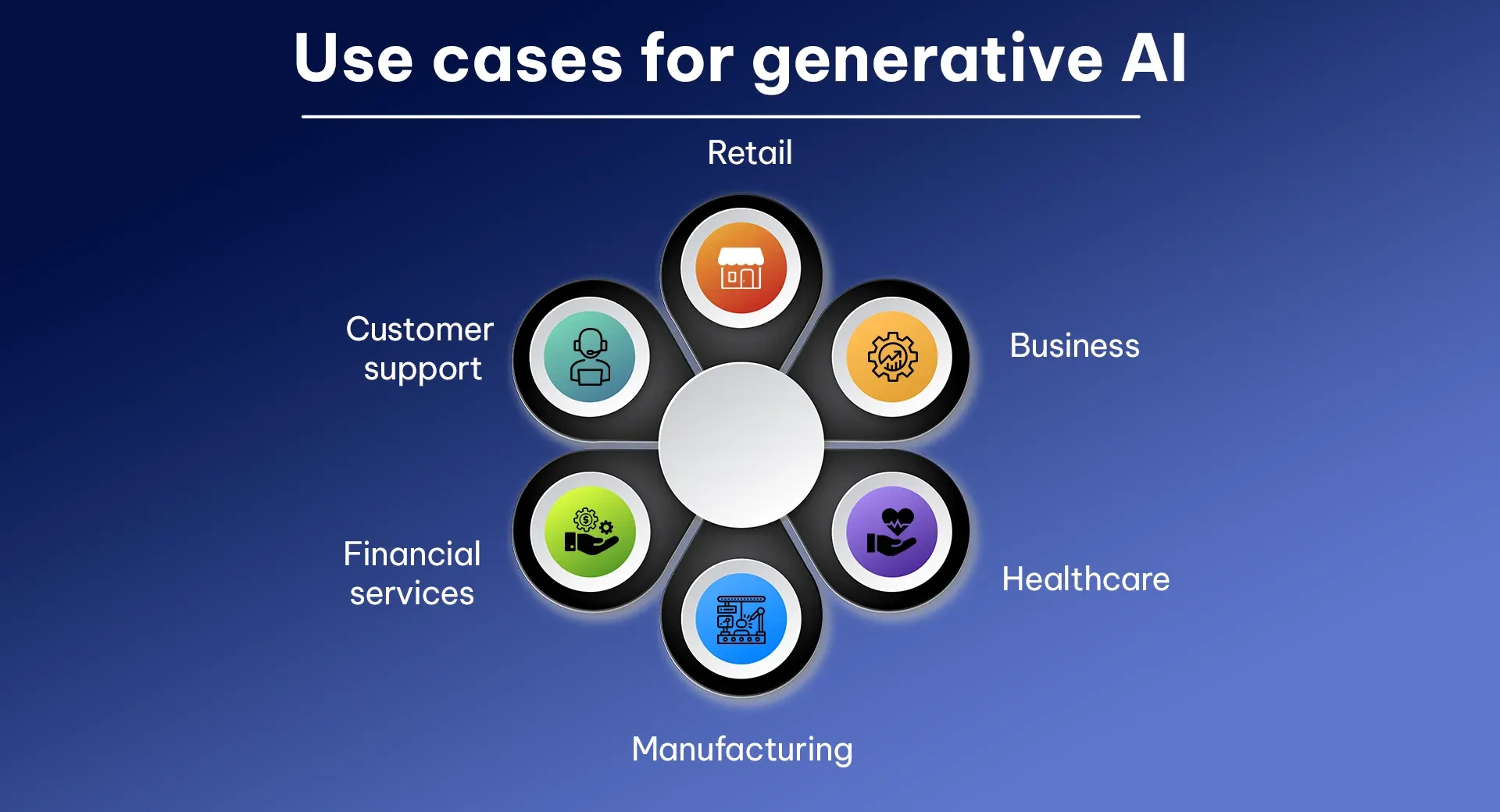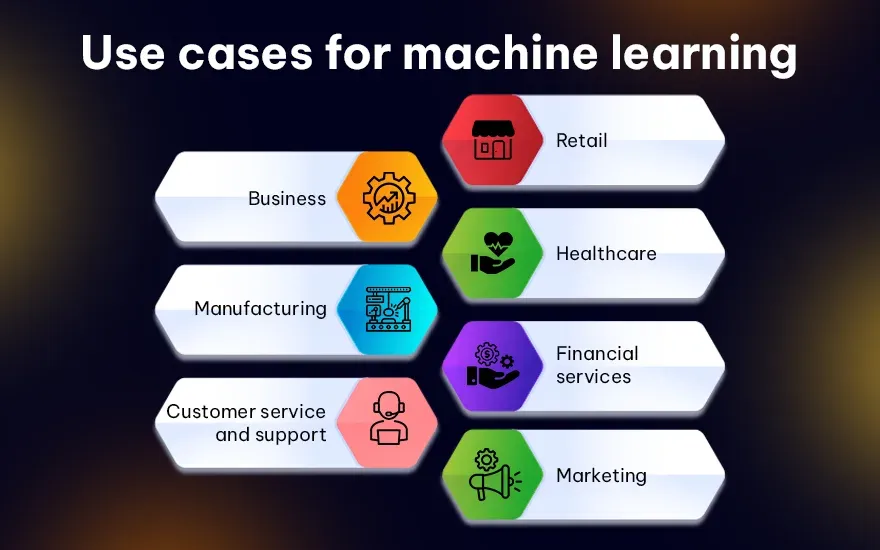
In the last decade, use of machine learning skyrocketed.
Every business was using it to process and analyze data.
But in the last two years, after the launch of ChatGPT. The focus has shifted on Generative AI. And many often confuse both of them as the same technologies.
Well, they are not completely wrong. Both of them are similar but have a few differences.
Each of them have their pros and cons. It depends on what use case you are planning them to use for.
To give you a clear picture, we have created this article- Generative AI Vs. Machine learning.
What will you learn from this article?
- What is generative AI/machine learning?
- What are the use cases?
- How are they different?
What Is Generative AI?
Generative AI is basically a subset of AI. It can create content like text, images and also help us with writing codes and songs. It is trained on a huge number of datasets to generate output based on the prompts that we provide.
So, instead of just analyzing data it learns patterns and uses them to generate something new. It is like a machine that can imagine and provide us with creative outputs.

1. Generative adversarial networks (GANs): GANs are a type of AI model where there are two networks. And they compete against each other. What they do basically is one generates new data and the other verifies whether the data is fake or real. It helps make generative AI models that can provide accurate output based on user input.
2. Transformers: Transformer is a type of AI architecture. It helps improve efficiency in processing sequential data like text. Unlike older models, transformers today are able to understand the context and provide textual output that makes sense.
3. Large language models (LLMs): GPT that we use today is powered by LLMs. They are trained on huge amounts of data. Since all the data given to them is human generated, what they do is they understand this data to generate outputs like humans.
4. Multimodal AI: Multimodal AI is a system that can process multiple data types like text, music, images, sound and more. For example, if you give a caption to a multimodal AI, it can match it to the relevant image or video.
Use cases for generative AI
Generative AI is used in every sector today. It helps businesses automate tasks and personalize experiences for the end user. From generating text and images to analyzing data, it is helping businesses be more innovative.

1. Retail
In retail, businesses are using Gen AI for personalizing shopping experiences. It helps them provide product recommendations. Some businesses are even using it to help customers visualize the product. It's like the snapchat filters, but here customers can actually try the products.
2. Business
The most common use case for businesses is for generating content and analyzing data. Also, they can use it to brainstorm ideas. It helps them develop product features and optimize their marketing campaigns.
3. Healthcare
Doctors and hospitals are using Generative AI in healthcare to analyze their patient reports. In some cases, it is also used to detect disease like cancer in early stages. It can literally save lives.
4. Manufacturing
Manufacturers are using generative AI to create better product designs and prototypes based on specific requirements. Generative AI can also predict maintenance so manufacturers can reduce machine downtime.
5. Financial services
In finance businesses, generative AI can generate reports, detect frauds and provide personalized advice. It can analyze the data from the past and provide insights into investments.
6. Customer support
We are already seeing AI powered chatbots that talk like humans and provide resolution to customer queries. They are saving time and cost for companies, while providing support 24*7.
Also read this article : Benefits of Machine Learning
What Is Machine Learning?
Machine learning is not very different than AI. It is designed to find patterns in the data provided. It uses these patterns to help humans make better decisions. And since it is trained on large amounts of datasets, it can help make decisions by considering a number of factors.
Machine learning models often require regular updates and new data to provide relevant outputs. And it uses its algorithm to process new data and make decisions on its own.

1. Supervised learning: In supervised learning, machines are usually given labeled data. It means that it is given the input and the expected output. So, it provides many personalized outputs for users. It also keeps learning overtime and improves itself.
2. Unsupervised learning: In this method, machines are only given the input data and no output. Machines can automatically find patterns and group data on its own. One of the most use cases for this type of learning is clustering. Here the model groups similar data points together.
3. Reinforcement learning: This kind of learning involves trial and error. Machines can try different things and if they succeed they get rewarded. But if they fail, they get penalties. So, it teaches machines to take actions that earn maximum rewards.
Use cases for machine learning
Machine learning algorithms are used in multiple industries. ML algorithms are designed to perform a variety of tasks based on your requirements. It helps with automating repetitive tasks and also with data analysis.

1. Retail
In retail, machine learning is used to find patterns from the past sales data. It helps retailers provide personalized product recommendations. They can recommend products and predict future sales, so they can keep their inventory ready during peak times.
2. Business
Businesses have large sets of data. They use ML to analyze this data and find trends. It enables businesses to make better decisions and use their data wisely. For example, ML can help businesses find issues with supply chains, and make it more efficient.
3. Healthcare
Healthcare providers are using machine learning to analyze patient data and provide diagnosis. Doctors can feed the health records of patients and ML can find unusual patterns in it. It helps doctors find early signs of disease and treat them.
4. Manufacturing
In manufacturing businesses, they usually use it to keep track of machine health and product processes. It helps them predict machine downtime and avoid failures. It saves cost and improves the overall production process.
5. Financial services
Machine learning financial businesses detect fraud and unusual patterns in transactions. It also helps in providing personalized financial advice based on past behavior. It improves the overall processes and helps provide better customer service.
6. Customer service and support
Chatbots powered by machine learning are used in customer service to answer questions quickly and solve common problems. This helps customers get the answers they need faster and reduces wait times for support.
7. Marketing
Marketers use machine learning to predict when customers might leave and to better target ads and promotions. It helps companies create personalized marketing campaigns, reaching the right people. It makes the overall sales efforts more effective.
Generative AI vs. machine learning
Generative AI focuses on creating new content with high autonomy, working with various data types, and mimicking human decisions. It's used for broad, creative applications, self-learning and adjusting over time. Machine Learning, on the other hand, learns from structured or semi-structured data with feedback, assisting human decision-making. It improves as it receives new data, using statistical models for predictive and analytical purposes.
| Parameter | Generative AI | Machine Learning |
|---|---|---|
| Purpose | Creates new content | Learns from data |
| Autonomy | High autonomy in creation | Learns with feedback |
| Data Type | Works with all data types | Structured, semi-structured data |
| Applications | Broad and creative uses | Predictive and analytical uses |
| Decision-making | Mimics human decisions | Assists human decision-making |
| Improvement | Self-learns and adjusts | Improves with new data |
| Learning Approach | Uses logic and reasoning | Statistical models and feedback |
Challenges in Generative AI and Machine Learning
1. Data Challenges
a. Data Quality and Quantity
- Problem: Generative AI models like GPT or diffusion models require massive datasets to learn effectively. Poor-quality, biased, or insufficient data can lead to unreliable results.
- Example: If training data lacks diversity, the model can generate outputs that reflect cultural or demographic biases.
- Solution: Better curation, preprocessing, and augmentation techniques are needed to ensure balanced training datasets.
b. Access to Proprietary Data
- Problem: High-quality datasets, such as medical or financial data, are often proprietary, limiting access for many developers.
- Solution: Open datasets and synthetic data generation techniques are becoming increasingly important.
2. Model Complexity and Computational Costs
a. Training Costs
- Problem: State-of-the-art models like GPT-4 or Stable Diffusion require massive computational resources, making training prohibitively expensive for smaller organizations.
- Solution: Innovations like model pruning, quantization, and transfer learning aim to reduce costs.
b. Overparameterization
- Problem: Models often become unnecessarily large and complex, leading to inefficiencies.
- Solution: Researchers are exploring lightweight architectures to maintain performance without excessive resources.
3. Ethical and Societal Challenges
a. Bias in AI Models
- Problem: Generative models can inadvertently reinforce stereotypes or biases present in the training data.
- Example: Gender bias in job recommendation systems.
- Solution: Implementing fairness checks and ethical auditing during development.
b. Misinformation and Deepfakes
- Problem: Generative AI can create highly realistic fake content, making it easier to spread misinformation.
- Example: AI-generated deepfakes used in scams or political propaganda.
- Solution: Developing AI tools to detect deepfakes and misinformation.
c. Intellectual Property Issues
- Problem: AI models trained on copyrighted data may generate content that infringes on intellectual property rights.
- Solution: Stricter data usage policies and clearer legal frameworks.
4. Interpretability and Explainability
- Problem: Most generative models are considered "black boxes," making it hard to understand how they make decisions.
- Impact: Lack of transparency can reduce trust in AI systems, especially in high-stakes domains like healthcare or finance.
- Solution: Advancing explainable AI (XAI) methods to improve interpretability.
5. Generalization and Robustness
- Problem: Generative AI models often struggle to generalize well to unseen scenarios.
- Example: Chatbots generating irrelevant or nonsensical responses when presented with unusual input.
- Solution: Improving training strategies to increase robustness across diverse input scenarios.
6. Regulation and Governance
- Problem: The rapid growth of generative AI outpaces the development of legal and regulatory frameworks.
- Example: Concerns around AI-driven surveillance or privacy breaches.
- Solution: Governments and organizations must collaborate to establish ethical guidelines and enforceable policies.
7. Energy Consumption and Environmental Impact
- Problem: Training large-scale models consume significant amounts of energy, contributing to carbon emissions.
- Example: The energy usage of training GPT-3 was estimated to be equivalent to the annual carbon footprint of several cars.
- Solution: Researchers are focusing on more energy-efficient algorithms and hardware optimizations.
8. User Expectations and Misuse
a. Over-reliance on AI
- Problem: Users often assume AI outputs are always accurate, which can lead to errors in decision-making.
- Solution: Emphasizing the limitations of generative AI in user interfaces.
b. Malicious Applications
- Problem: Generative AI can be misused to create harmful content, such as phishing emails or malware code.
- Solution: Monitoring and restricting misuse through platform-level safeguards.
Considerations When Using Machine Learning and Generative AI
It is important to understand the concepts of both AI and ML. But before implementing it in your business, you need to consider a few factors.
1. Higher data quality: Data is everything in these technologies so training them on high quality and relevant data is important to get the desired outcomes.
2. Data security: Some businesses involve personal data. So it is important to take necessary measures before using them for training.
3. Ongoing training: Both of these technologies are advancing rapidly. So it is important to upskill your team with the latest advancements.
Conclusion
To wrap up, it is safe to say that no businesses can avoid these technologies today. It is important to implement them mindfully in your business. You can choose between Generative AI and machine depending on the use case and desired outcomes.
At Rejoicehub LLP , we are experts in providing AI/ML development services. Our team understands your business requirements and recommends ideas to implement them in your business. With Rejoice’s AI and ML development solutions, you can save cost and improve the overall productivity for your business.
Frequently Asked Questions
1. What is the main goal of generative AI?
Generative AI is mainly designed to generate text, images, videos and more. Users can simply give a prompt and AI will automatically generate the output for them.
2. How are Generative AI and ML different?
To put in simple words, Generative AI models can generate text, images, and more. On the other hand ML models focus on analyzing patterns and making predictions based on them.
3. Which one is better: Generative AI VS. Machine learning?
It depends on the use case or industry you want to implement these technologies. For example, in industries like marketing, where generating content and ideas is more important, you can use Generative AI. But for businesses who have to process large amounts of data, you can use ML.